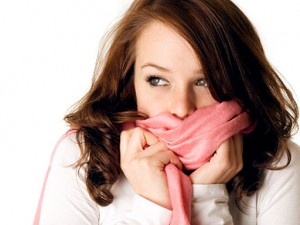 What are Chills?
What are Chills?Chills are feelings of coldness which can occur when exposed to extended-periods of coldness or during the body’s attempt to fight an infection. Chills occur as muscles rapidly expand and contract to keep the body warm. Chills are commonly associated with fever, and may produce symptoms of shaking, pale skin, goosebumps and feeling abnormally cold.
Chills may be produced by practically any medical condition that causes fever such as bacterial or viral infections, and even more serious illnesses including malaria and cancer. Since medicines can account for fever, they may also cause of chills.
Chills generally do not require serious treatments and may be reduced by treating a fever associated with the chills. It is recommended that patients drink a healthy amount of water to replace loss of fluids through fever, chills and sweating. Staying hydrated may also help regulate body temperature. Avoid becoming too hot or cold; do not use blankets or bath in water that is too warm or cool. Chills may be treated by reducing a fever through washing with warm water.
Persistent and severe chills may need to be treated with acetaminophen to control the condition.